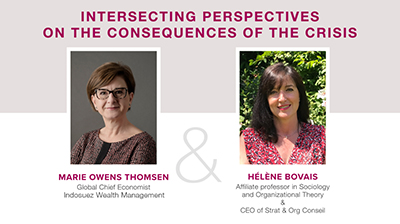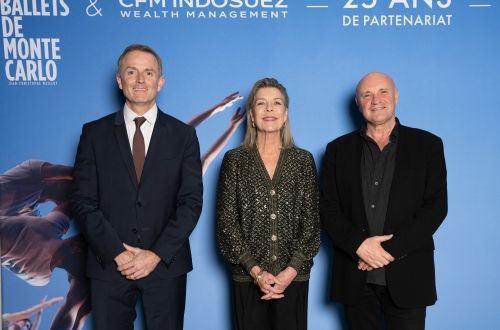Intersecting Perspectives on the Consequences of the Crisis

What are the inherent threats and opportunities presented by the Covid-19 Crisis? How can we build a more robust and resilient society? These are the questions we are asking ourselves at the end of this unpredictable semester. In an attempt to answer these questions, we deemed it interesting to cross analyse the expert point of view of an economist and a sociologist. We also asked Marie Owens Thomsen, Global Chief Economist, Indosuez Wealth Management, and Hélène Bovais, professor of sociology and organisational theory and General Manager of Strat & Org Conseil to comment on the changes taking place et to estimate their perpetuity.
In fact, Hélène Bovais underlines that “if great crises provoke great changes, we must take the stabilising forces attenuating the scope and rhythm of these changes into account”. Among these stabilising forces, she brings up the inertia of our values and beliefs, along with particular interests and the distribution of power in our society, to name a few. Marie Owens Thomsen deems that “if we wish to make our society evolve, it is high time we reshape our societal system. The only way to see this through is to increase the place of the state within the economy, a rarely interrupted tendency in our history”.
The dialogue between both of these experts leads us to reflect on our perception of the economy, the adaptation of our organisations, or even of our managerial style. This enables us to better understand “the complacency exerted in the environmental domain, along with the fact that in general, societal changes are implemented in an incremental manner over the long term”, according to Hélène Bovais. Either way, today, following this long and difficult crisis, signals allow us to glimpse a rebuilding of our society, one in favour of a more robust economy.
15 julio 2020





